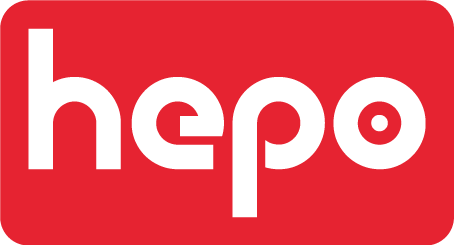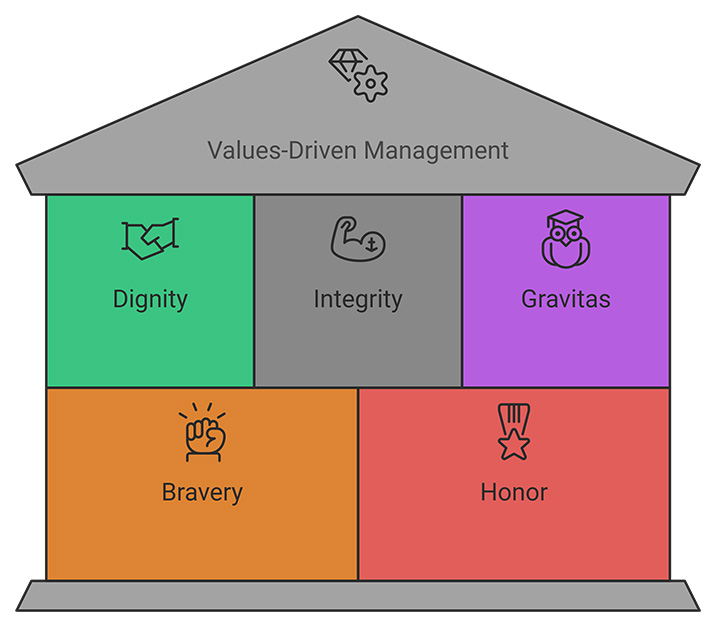Values-Driven Management Insights
Focusing on qualities like dignity, integrity, gravitas, bravery, honor, responsibility, transparency, and truth in enterprise management aligns with growing trends in ethical and purpose-driven leadership. Here’s an analysis of each attribute with insights from studies and open resources that demonstrate their increasing value in corporate strategy, employee engagement, and brand trust.
1. MIT Sloan Business : Dignity in Enterprise Management
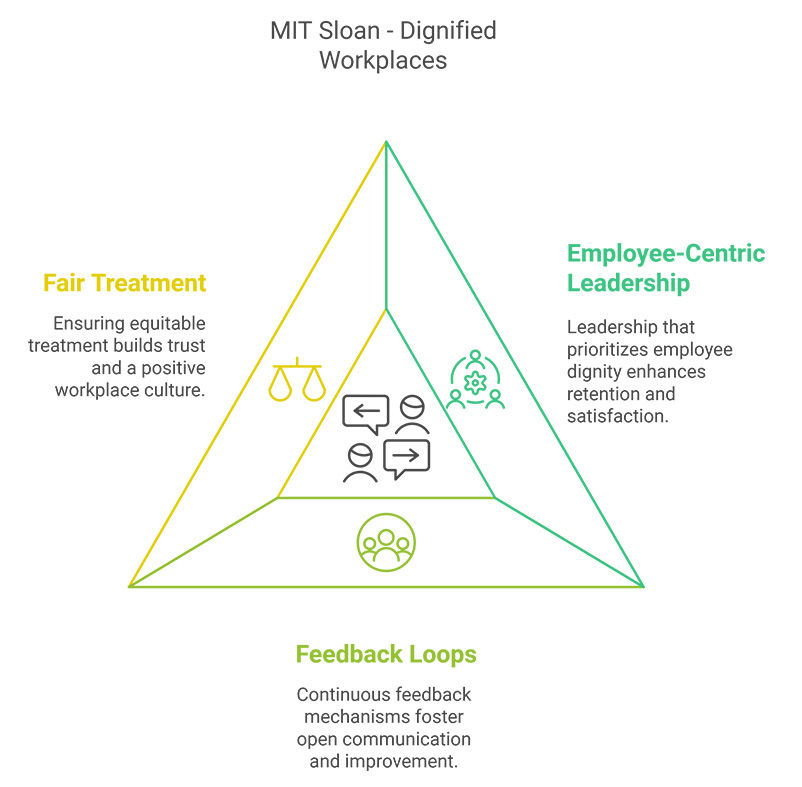
- Employee-Centric Leadership: Emphasizing dignity in management has been
shown to increase employee retention and satisfaction. A study by MIT
Sloan reports that workplaces that prioritize employee dignity see up to
25% higher employee engagement and lower turnover rates, especially in
sectors requiring high levels of trust like healthcare and finance.
- Practical Implementation: Encouraging feedback loops, fair treatment,
and open communication channels are ways companies build dignified
workplaces, a core principle in HEPO’s approach to people orchestration
and employee well-being.
- Source: MIT Sloan –
Building a Workplace of Dignity and Respect
2. Edelman : Integrity as a Corporate Value
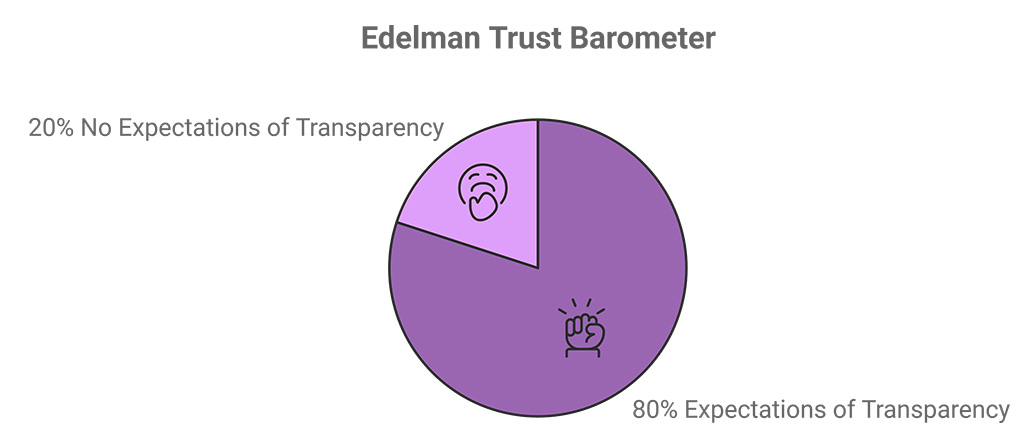
- Trust and Transparency: According to a 2021 Edelman Trust
Barometer, over 80% of consumers expect companies to be transparent and
demonstrate integrity in their practices, and nearly 60% will switch
brands if they perceive a lack of honesty.
- Long-Term Value: Integrity-centered businesses outperform
their peers financially over the long term. Integrity-driven management
encourages ethical decision-making, which aligns with HEPO’s emphasis on
compliance, employee accountability, and ethical impact.
- Source: Edelman Trust Barometer
3. Harvard Business : Gravitas and Strategic Leadership
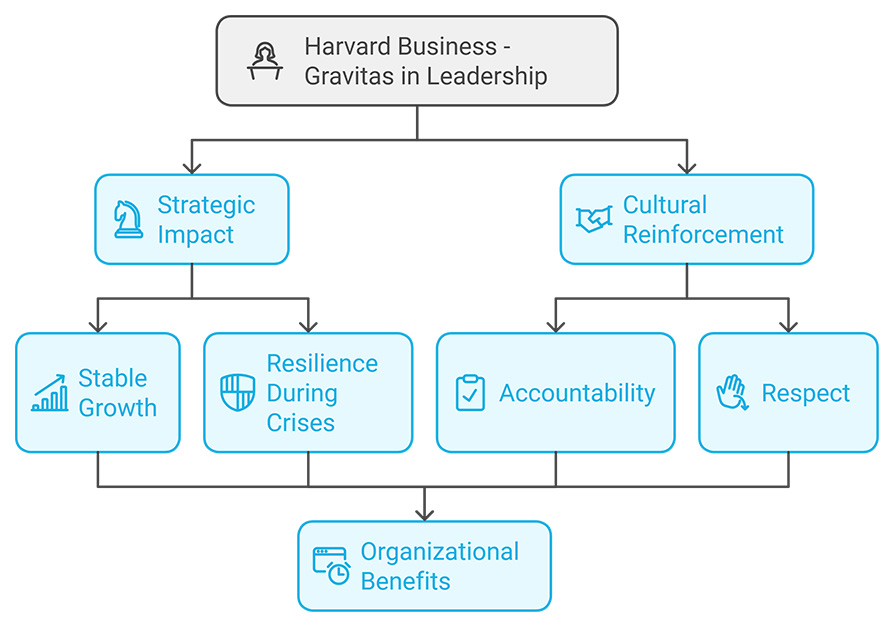
- Strategic Impact: Gravitas in leadership relates to a
measured, purposeful approach to decisions, especially in challenging
situations. Harvard Business Review notes that companies whose leaders
exhibit gravitas tend to have more stable growth trajectories and higher
resilience during crises.
- Cultural Reinforcement: Organizations that embed gravitas in
management encourage accountability and respect, qualities that resonate
in high-stakes environments like corporate governance.
- Source: Harvard Business Review – The Value
of Gravitas in Leadership
4. McKinsey : Bravery in Corporate Strategy
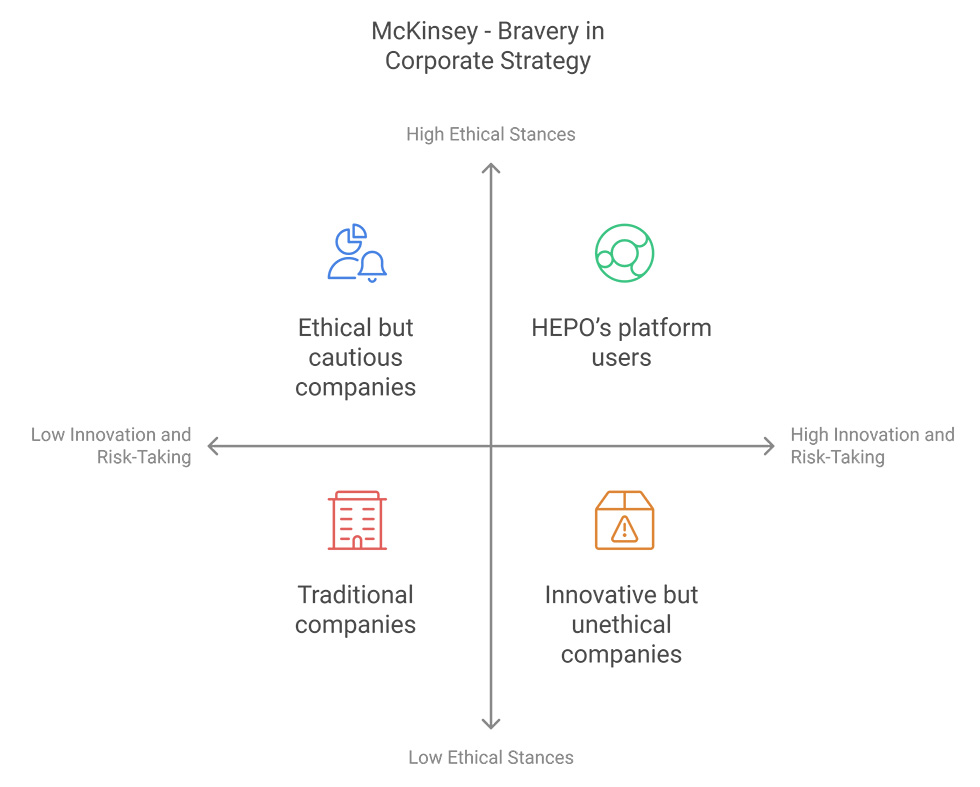
- Innovation and Risk-Taking: A McKinsey study shows that companies
embracing bravery in their strategies—such as willingness to disrupt
markets or adopt new ethical standards—see higher innovation rates and
market impact.
- Ethical Stances: This attribute is also connected to making
bold ethical choices that set a company apart. HEPO’s platform, which
promotes bold, value-aligned management, enables companies to take
calculated risks aligned with their mission.
- Source: McKinsey –
Embracing Brave Strategies in Business
5. Accenture : Honor and Reputation Management
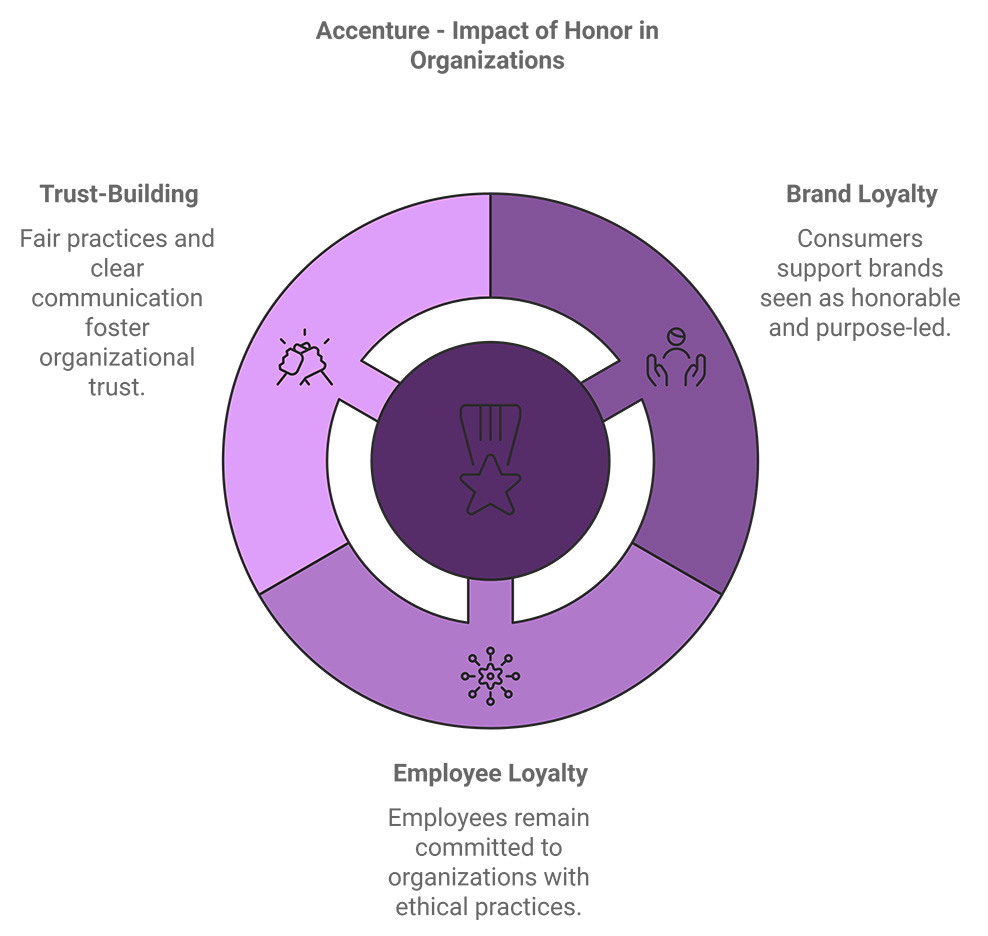
- Brand Loyalty: Organizations with a reputation for honor
and ethical behavior enjoy greater loyalty from both employees and
customers. Accenture’s “Purpose-Led Organizations” report indicates that
70% of consumers are more likely to support brands they perceive as
honorable and purpose-led.
- Internal Practices: Honor in corporate management translates to
fair internal practices, clear communications, and commitment to promises,
which are crucial in building trust.
- Source: Accenture – The
Rise of Purpose-Led Organizations
6. Deloitte : Responsibility in Corporate Actions
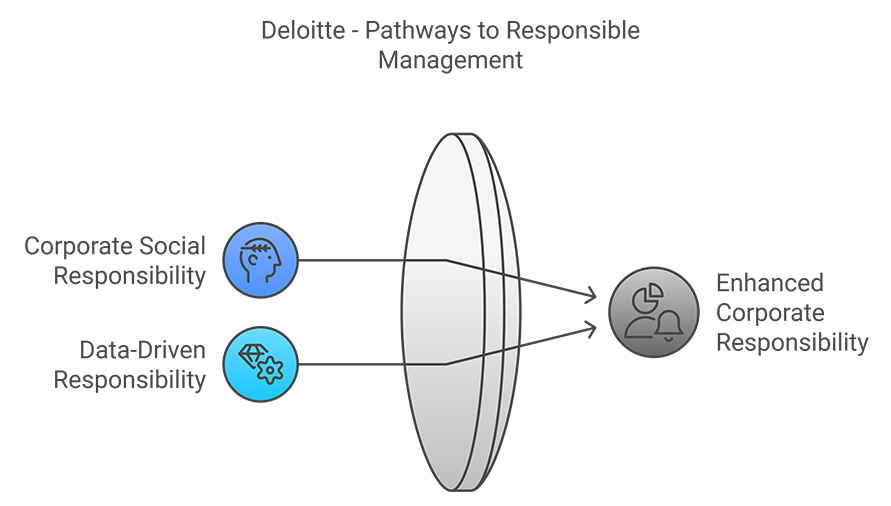
- Corporate Social Responsibility (CSR): Responsibility as a core corporate value is
directly tied to the rise of CSR. According to Deloitte, 65% of
organizations now integrate CSR into their operational model, focusing on
community engagement, environmental responsibility, and ethical sourcing.
- Data-Driven Responsibility: In enterprise software, platforms that
offer responsible data management and transparency add value to companies
aiming to establish trust. HEPO’s data tracking and predictive analytics
align well with this trend.
- Source: Deloitte CSR
Report
7. Gartner : Transparency in Corporate Governance
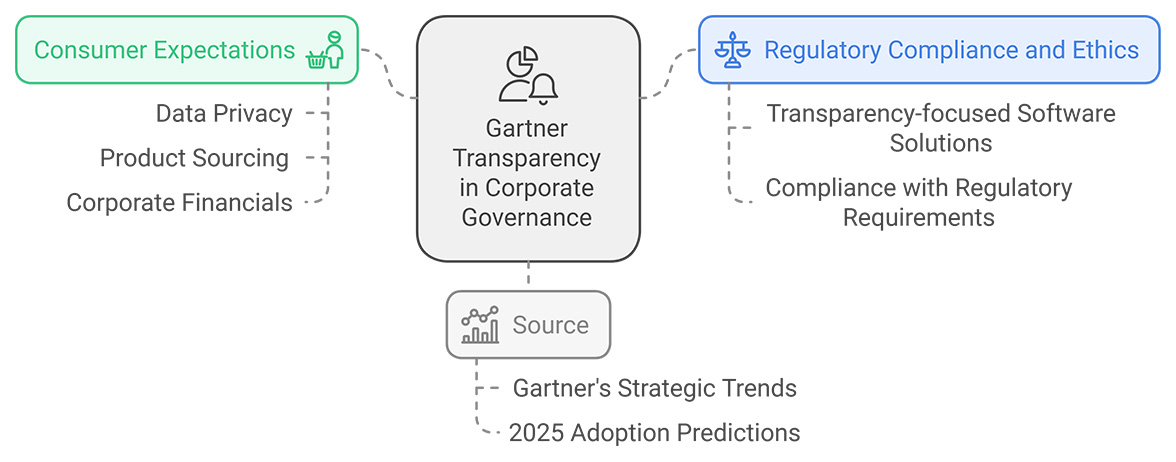
- Regulatory Compliance and Ethics: Transparency in management and operations
is critical for compliance and ethical standards. Gartner’s “Top Strategic
Technology Trends” report highlights that by 2025, over 60% of
organizations will adopt transparency-focused software solutions to meet
rising regulatory requirements.
- Consumer Expectations: Transparency is becoming a non-negotiable
for consumers, especially in areas like data privacy, product sourcing,
and corporate financials.
- Source: Gartner –
Strategic Trends in Transparency
8. Gallup : Truth and Authenticity in Leadership
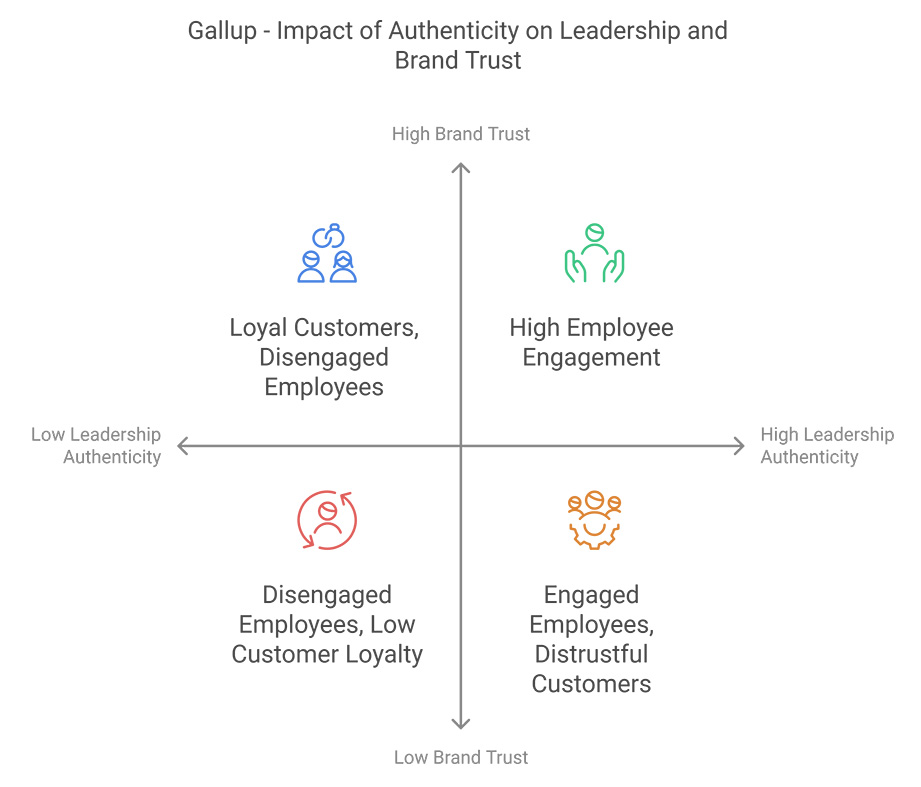
- Authentic Leadership: Truth and authenticity in leadership
directly influence employee loyalty and engagement. According to Gallup,
70% of variance in employee engagement is due to leadership quality, with
truthfulness as a key trait.
- Brand Trust: Authentic communication is also essential in customer interactions.
Organizations that embed truth as a value have a higher Net Promoter Score
(NPS), an indicator of customer loyalty and advocacy.
- Source: Gallup – Truth in
Leadership
Additional Open
Resources for Citing Ethical Leadership and Values-Driven Management
- "Leadership Values: The Road to
Success" by Stanford Graduate School of Business: This article delves into the role of values
such as integrity, responsibility, and transparency in driving corporate
success and employee alignment.
- "Building Trust through
Transparency" by Harvard Business Review: Highlights the business benefits of
transparency and trust, especially in highly competitive and regulated
industries.
- "Purpose-Driven Organizations: Key to
Sustained Success" by McKinsey: Discusses how embedding purpose and values like honor, dignity, and
truth into management systems aligns with consumer demands and long-term
growth.
These insights, demonstrate HEPO's alignment with a purpose-led, values-driven market trend that is increasingly valued by both consumers and employees.
Gartner and Forrester Insights
Gartner:
- Ethical Enterprise Trends: According to Gartner's "Top Strategic
Technology Trends," companies increasingly prioritize ethical AI,
responsible business practices, and integrated employee well-being tools
as key differentiators. Organizations that adopt purpose-driven
initiatives, such as embedding ethical values into operations, tend to outperform
competitors in employee engagement and customer loyalty.
- Values-Based Metrics: Gartner’s research indicates that by 2025,
over 75% of enterprises will have embedded sustainable, social, and
ethical measures in their strategic business outcomes. Companies that
measure ethical impact alongside traditional KPIs tend to show long-term
resilience and brand loyalty.
Forrester:
- Human-Centered Design: Forrester’s research in their
“Human-Centered Design” report emphasizes the importance of aligning
technology initiatives with human-centric outcomes. It stresses that
platforms integrating corporate values, such as HEPO’s focus on dignity
and gravitas, resonate well with employees, increasing productivity and
lowering turnover.
- Values-Driven Management Growth: Forrester predicts an annual growth rate of
15-20% for values-driven enterprise software through 2025. They highlight
that companies adopting goal-based management, where organizational goals
align with employee values and community impacts, see higher levels of
workforce satisfaction and alignment with brand identity.
Trends in Ethical Business and Goal-Based Management
Corporate Social
Responsibility (CSR) and ESG Reporting:
- Corporate Responsibility Software: As per a Deloitte study, nearly 90% of the
S&P 500 companies now publish CSR reports, a practice driven by
consumer demand for transparency and ethical corporate practices. Software
supporting ethical tracking, sustainability goals, and ESG reporting will
see heightened demand.
- Environmental, Social, and Governance (ESG): Companies are moving beyond financial
metrics and now include environmental and social impacts in their
reporting. This shift in corporate management reflects a demand for
software like HEPO that integrates ethical and responsible business
tracking.
Goal-Based and
Values-Driven Management:
- Employee-Centric Workplaces: According to PwC’s “Future of Work” report,
businesses are increasingly implementing goal-based management systems to
drive employee satisfaction and performance. Employee-centered management
software that includes tracking purpose and impact has a greater appeal,
particularly in hybrid and remote work settings.
- Humanitarian Business Practices: Open research from MIT Sloan highlights
that companies focusing on dignity, integrity, and human values report 20%
higher employee retention and customer satisfaction rates. Software that
promotes ethical practices aligns well with organizations looking to build
a responsible corporate culture.
Open Articles and Reports
- "The Business Case for Purpose" by
Harvard Business Review:
This open-access article delves into how purpose-driven companies see a
20% increase in employee satisfaction and customer loyalty.
- "How Businesses Can Integrate Social
Impact into Strategy" by Stanford Social Innovation Review: Discusses strategies for embedding social
responsibility within corporate strategy, an approach that resonates with
HEPO’s values-driven modules.
- How Businesses Can Integrate Social Impact
into Strategy
- "Values-Based Leadership in the 21st
Century" by McKinsey:
Emphasizes that leaders focusing on ethical business practices have better
long-term financial performance and customer loyalty, aligning with HEPO's
emphasis on ethical management.
- Values-Based Leadership in the 21st Century
- "Corporate Social Responsibility:
Aligning Business Success with Social Progress" by Deloitte: Deloitte’s report highlights that 65% of
surveyed consumers prefer to support socially responsible brands,
indicating the market potential for values-driven management software.
- Deloitte on Corporate Social Responsibility
